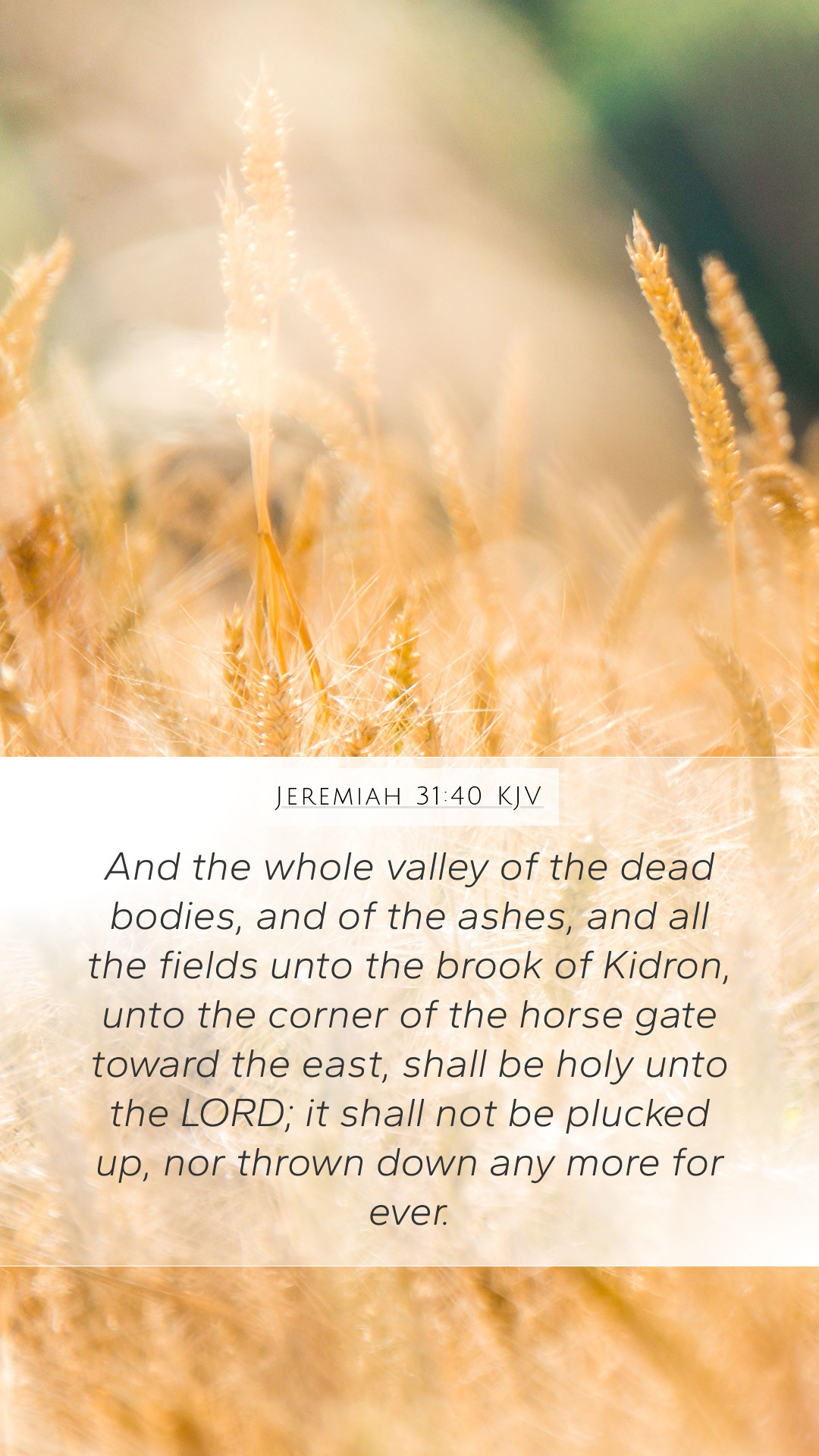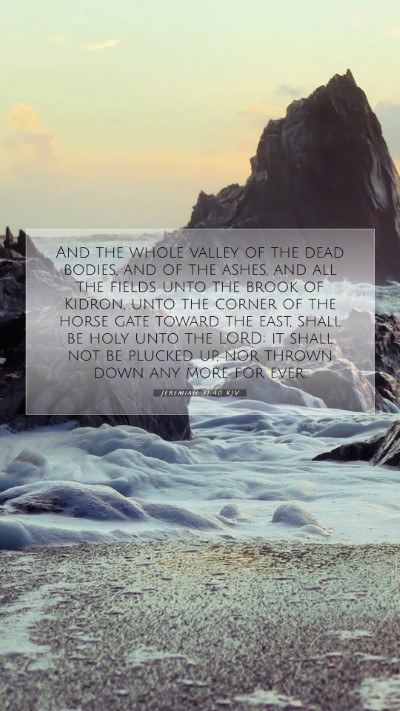Understanding Jeremiah 31:40
Jeremiah 31:40 reads: “And the whole valley of the dead bodies and of the ashes, and all the fields unto the brook of Kidron, unto the corner of the horse gate toward the east, shall be holy unto the LORD; it shall not be plucked up, nor thrown down any more for ever.” This verse is a proclamation of restoration and sanctification concerning Jerusalem and its surroundings, indicating a time when the valley that once saw death and destruction will be transformed into a holy place.
Verse Meaning and Interpretation
This passage emphasizes several key themes, reflecting a profound scriptural promise of renewal. As interpreted by commentators such as Matthew Henry, the valley referenced symbolizes the desolation caused by sin and judgment. However, through divine redemption, this very place shall become consecrated.
- Divine Restoration: According to Albert Barnes, the promise signifies that God will bring holiness where once was anguish, pointing toward the New Covenant where Christ redeems and rejuvenates the believer and the land.
- Enduring Holiness: As noted by Adam Clarke, the prophetic message reflects an assurance that this holiness will remain permanent, showcasing God's eternal commitment to His people and their land.
- Symbolism of Ashes: The ashes in the valley signify past destruction, yet in God’s narrative, they foreshadow a future of renewal, revealing how God can transform even the most desolate places.
- Geographical Importance: The specific locations mentioned, such as the brook of Kidron, highlight the historical and geographical context, allowing believers to see the link between God’s word and the physical realm.
Contextual Analysis
To grasp the depth of Jeremiah 31:40, one must consider its placement within the wider prophetic literature. This verse sits in a chapter rich with promises of hope and restoration following Judah's exile. The assurance of no more destruction is particularly poignant for those who may feel lost or abandoned.
Historical Context
The backdrop of this passage depicts a tumultuous period for Israel, marked by the consequences of disobedience. Jeremiah consistently emphasizes God’s corrective discipline, but also highlights His unwavering love and mercy. Jeremiah 31 is often regarded as one of the great chapters of hope, affirming God’s promises of a new covenant with His people.
Application for Today
For contemporary believers, Jeremiah 31:40 serves as a reminder of God’s power to redeem and restore. It encourages individuals to seek holiness in their lives, understanding that no matter their past, God can transform their circumstances into something sacred.
- Personal Reflection: Individuals studying this passage may ponder on areas of desolation in their own lives and how God can bring renewal.
- Community Impact: This understanding can foster hope within Bible study groups, as members encourage each other towards spiritual growth and transformation.
- In-depth Study: Using this verse as a foundational text within Bible study materials can prompt discussions about the nature of God’s promises.
Cross References
This verse resonates with numerous other biblical passages:
- Ezekiel 37:26-28: Promises of a covenant of peace and God’s dwelling among His people.
- Isaiah 65:17: Proclamation of a new heaven and a new earth, indicating complete renewal.
- Revelation 21:1: The vision of a new creation where God wipes away every tear and brings ultimate restoration.
Conclusion
Jeremiah 31:40 encapsulates a powerful promise of hope and redemption. By immersing oneself in its meaning through scripture analysis and commentary, believers can cultivate a deeper understanding of God's unwavering commitment to His creation. Whether through personal study or in bible study groups, this verse invites all to reflect on God’s transformative power and the enduring nature of His promises.


